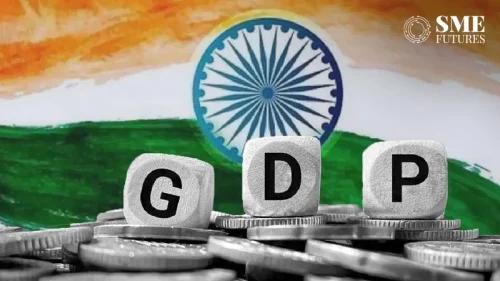In the ever-evolving landscape of business and employment, the concept of total rewards has emerged as a crucial factor in attracting, retaining, and engaging talent. The “Future of Pay” report delves into the complexities of total rewards, encompassing compensation, incentive frameworks, and the influence of modern benefits on employee well-being
Economic outlook: A global and Indian perspective
The global economy stands at a critical juncture, facing challenges ranging from geopolitical tensions to climate change. According to the Organisation for Economic Cooperation and Development (OECD), global growth is projected to slow down significantly, reflecting the aftermath of the pandemic and on-going global conflicts. However, amidst these challenges, India has emerged as a beacon of economic resilience, showcasing robust growth rates and contributing significantly to global expansion efforts.


India’s GDP growth projections for FY24 highlight its strong economic fundamentals and proactive measures in addressing inflationary pressures. The country’s role in global forums like the G20 underscores its influence on shaping economic policies and fostering international collaboration amid complex global dynamics.
“Amid global economic and geopolitical shifts shaping the workplace of the future, India stands resilient, bolstered by strong fundamental metrics. With robust domestic demand and a promising digital economy, India continues to assert its presence on the global stage,” says Abhishek Sen, Partner & Practice Leader Total Rewards, HR Technology and Learning, EY.
Sectoral opportunities and investment trends in India
As India positions itself as a premier investment destination, key sectors are poised for significant growth and transformation. The renewable energy sector, with ambitious targets for capacity expansion, presents immense opportunities for job creation and sustainable development. The automobile sector’s shift towards electric vehicles (EVs) reflects India’s commitment to green technologies and aligns with global trends towards cleaner energy solutions.

“While attrition rates are easing slightly, the talent market continues to face significant skill gaps with only a fraction of new entrants possessing the requisite skills for employment. This underscores the urgency for rapid upskilling and reskilling initiatives to bridge the talent divide. Despite these challenges, there’s cautious optimism in the business community fuelled by projections of stable compensation hikes and government initiatives aimed at fostering economic growth,” says Sen.
Infrastructure development remains a cornerstone of India’s growth strategy, with substantial investments planned to bolster urban centres and enhance connectivity. Additionally, the healthcare and pharmaceutical sectors are witnessing rapid advancements, propelled by innovation and evolving healthcare needs.
Technology and innovation: Catalysts for business evolution
The technology landscape in India is evolving rapidly, driven by advancements in AI, Big Data analytics, and digital platforms. Global Capability Centres (GCCs) are playing a pivotal role in harnessing India’s talent pool and driving innovation across industries. Financial technology (FinTech), agri-tech, and education technology (EdTech) sectors are experiencing transformative growth, leveraging technology to address diverse market demands.
Talent trends and workforce dynamics
The workforce landscape is undergoing a paradigm shift, with a strong emphasis on workplace flexibility, digital upskilling, and continuous learning. Hybrid work models are gaining prominence, offering employees greater autonomy and work-life balance. The demand for digital talent is on the rise, with specialised skills like AI, cloud computing, and data analytics becoming indispensable in today’s digital economy.
Employee expectations are evolving, with a focus on personalised career growth paths, wellness initiatives, and inclusive work environments. Organisations are reimagining talent retention strategies, aligning total rewards with employee preferences, and leveraging technology to enhance engagement and productivity.
Performance management and compensation trends


The future of pay is intricately linked to performance management practices and incentive frameworks. Companies are re-evaluating their compensation structures, incorporating performance-based pay elements, and ensuring fairness and transparency in reward systems. Long-term incentive plans (LTIPs) are becoming more strategic, aligning with organisational goals and talent retention objectives.

Executive compensation trends underscore the importance of linking pay with performance, sustainability goals, and ESG (environmental, social, and governance) criteria. Balancing fixed pay, short-term incentives, and long-term rewards remains a key focus area for organisations seeking to attract and retain top talent.
“While average pay hike percentages for India Inc remain flat vis-à-vis last year, there is a notable shift towards embracing a more comprehensive Rewards Value Proposition (RVP) to drive better ROI across all industries,” Sen contends.
“Additionally, a culture of recognition is gaining momentum, cultivating an atmosphere of mutual respect and appreciation for collective contributions. Furthermore, organisations are increasingly prioritising employee wellness, offering initiatives for physical and mental well-being along with new-age benefits,” he adds.
Emerging trends shaping total rewards
AI and automation are revolutionising total rewards strategies, enabling personalised benefits, data-driven decision-making, and enhanced employee experiences. The gig economy’s rise is reshaping workforce dynamics, prompting organisations to adapt to flexible work arrangements and diverse talent pools.


Diversity, equity, and inclusion (DE&I) initiatives are gaining prominence, reflecting a commitment to fostering inclusive workplaces and driving positive social impact. Environmental sustainability and ESG considerations are influencing reward structures, with companies integrating sustainability metrics into performance evaluations and incentive programmes.

Key focus areas: Strategies for enhanced total rewards
As businesses navigate a dynamic environment, several focus areas emerge as critical pillars of total rewards strategy:
Total Rewards Philosophy: Organisations are developing comprehensive total rewards philosophies that prioritise employee well-being while maintaining competitiveness and cost-effectiveness.
Performance-Based Pay: The integration of pay with performance management ensures that rewards are tied directly to individual and organisational achievements, driving a culture of accountability and excellence.
Globalisation and Geo-differential Pay: With an increasingly global workforce, companies are incorporating geo-differential pay structures to account for regional variations in cost of living and economic conditions.
Skill-Based Pay and Career Development: Skill-based pay bands and personalised career development plans are empowering employees to enhance their capabilities and achieve professional growth.
Innovation in Benefits and Wellness Programmes: From financial education services to AI-driven wellness platforms, organisations are leveraging technology and data analytics to design benefits packages that cater to diverse employee needs and preferences.

The convergence of AI, automation, and gig economy dynamics is reshaping the concept of employee value. Automated reward systems, personalised benefits, and data-driven decision-making are enhancing the employee experience and driving engagement. The gig economy presents opportunities for flexible work arrangements and specialised talent acquisition, contributing to workforce diversity and agility.
The path ahead
As businesses navigate the complexities of the modern work landscape, agility, innovation, and talent-centric strategies will be instrumental in driving organisational success. Embracing digital transformation, prioritising employee well-being, and aligning total rewards with evolving market trends will be key differentiators for organisations aiming to thrive in the future of work.
“The Future of Pay” report paints a compelling picture of the evolving pay landscape, highlighting opportunities, challenges, and strategies for organisations to stay ahead in a rapidly changing world. By embracing innovation, fostering talent development, and reimagining total rewards, businesses can unlock new avenues for growth and competitiveness in the dynamic work environment of tomorrow.










